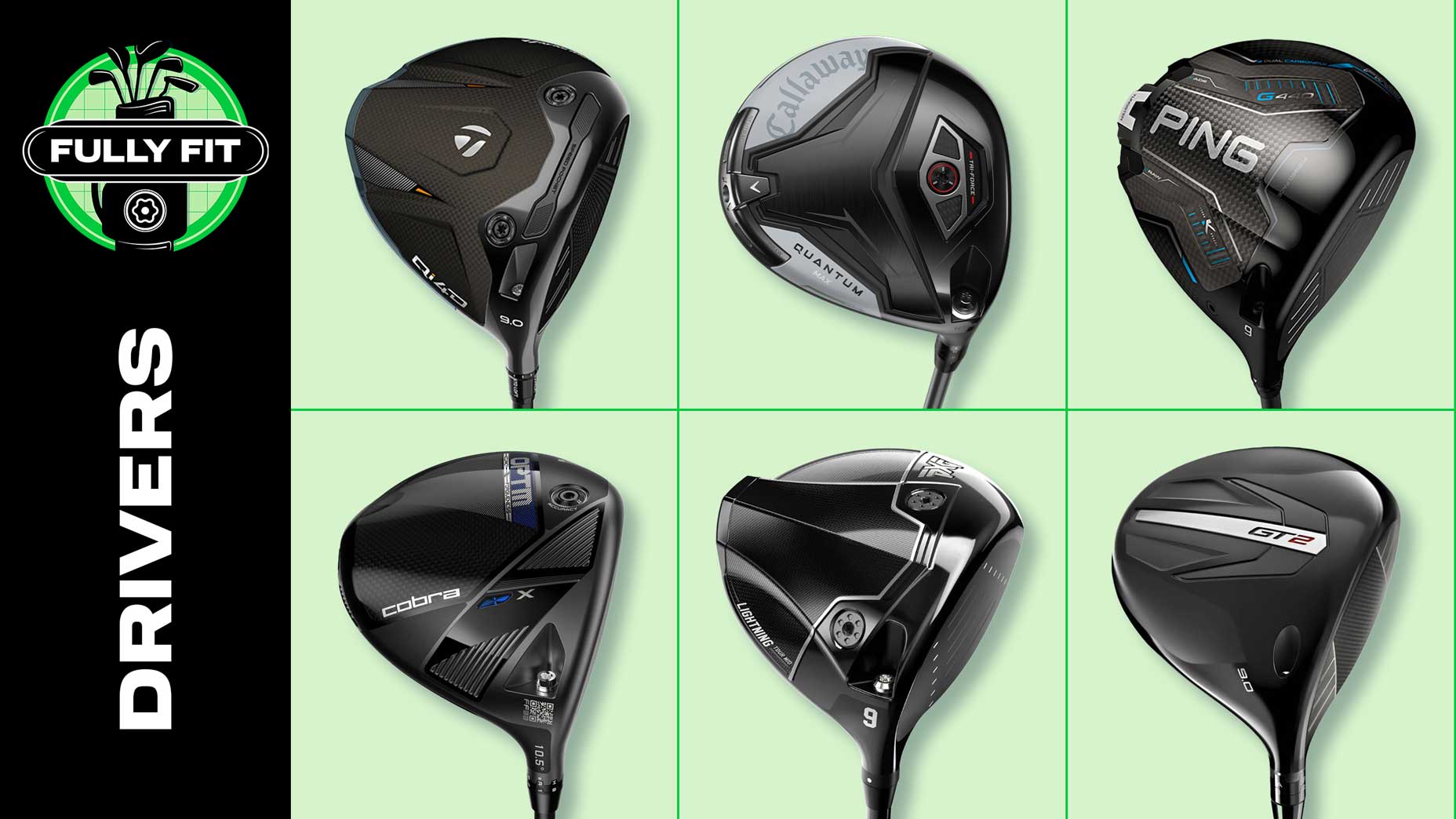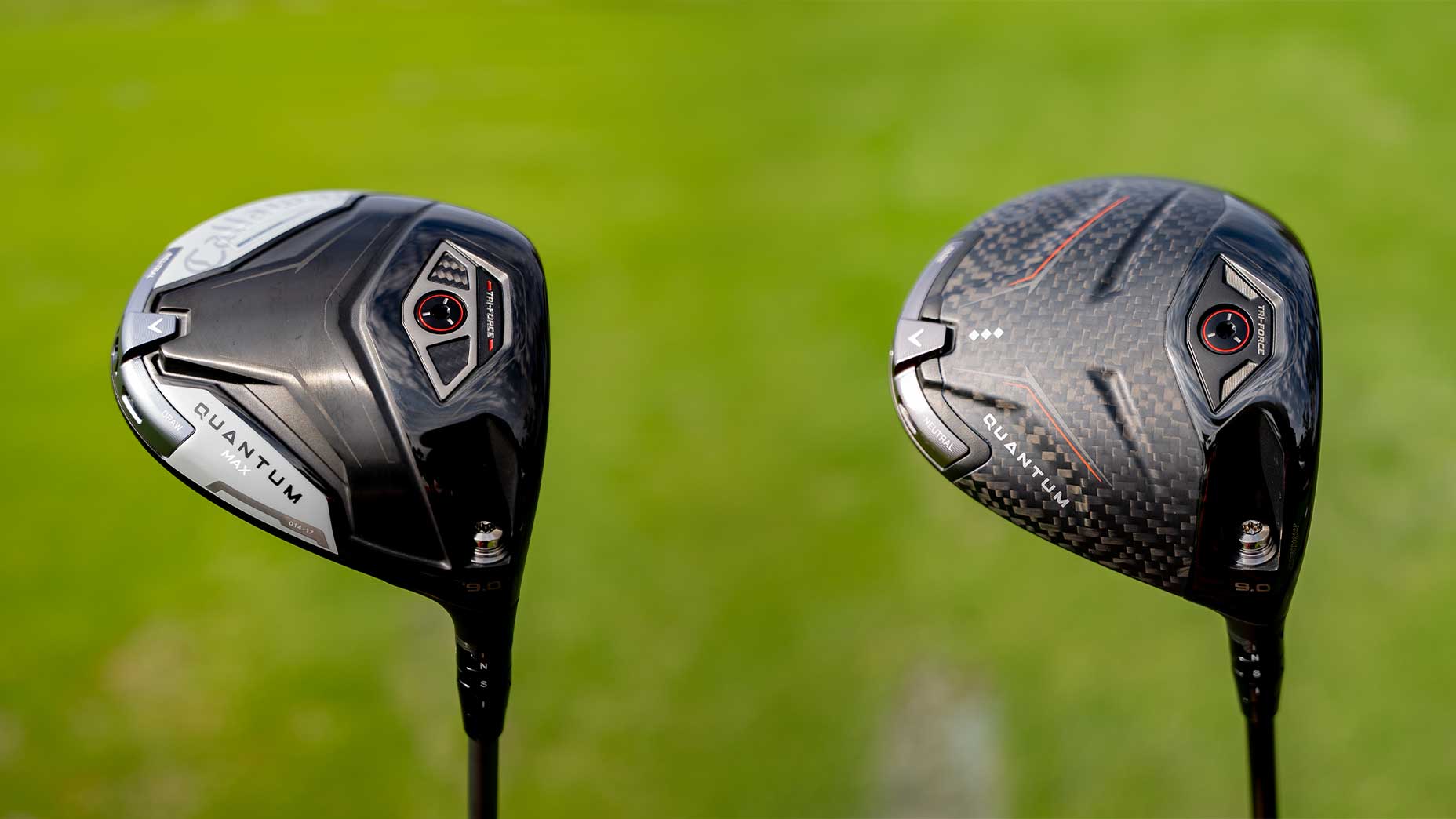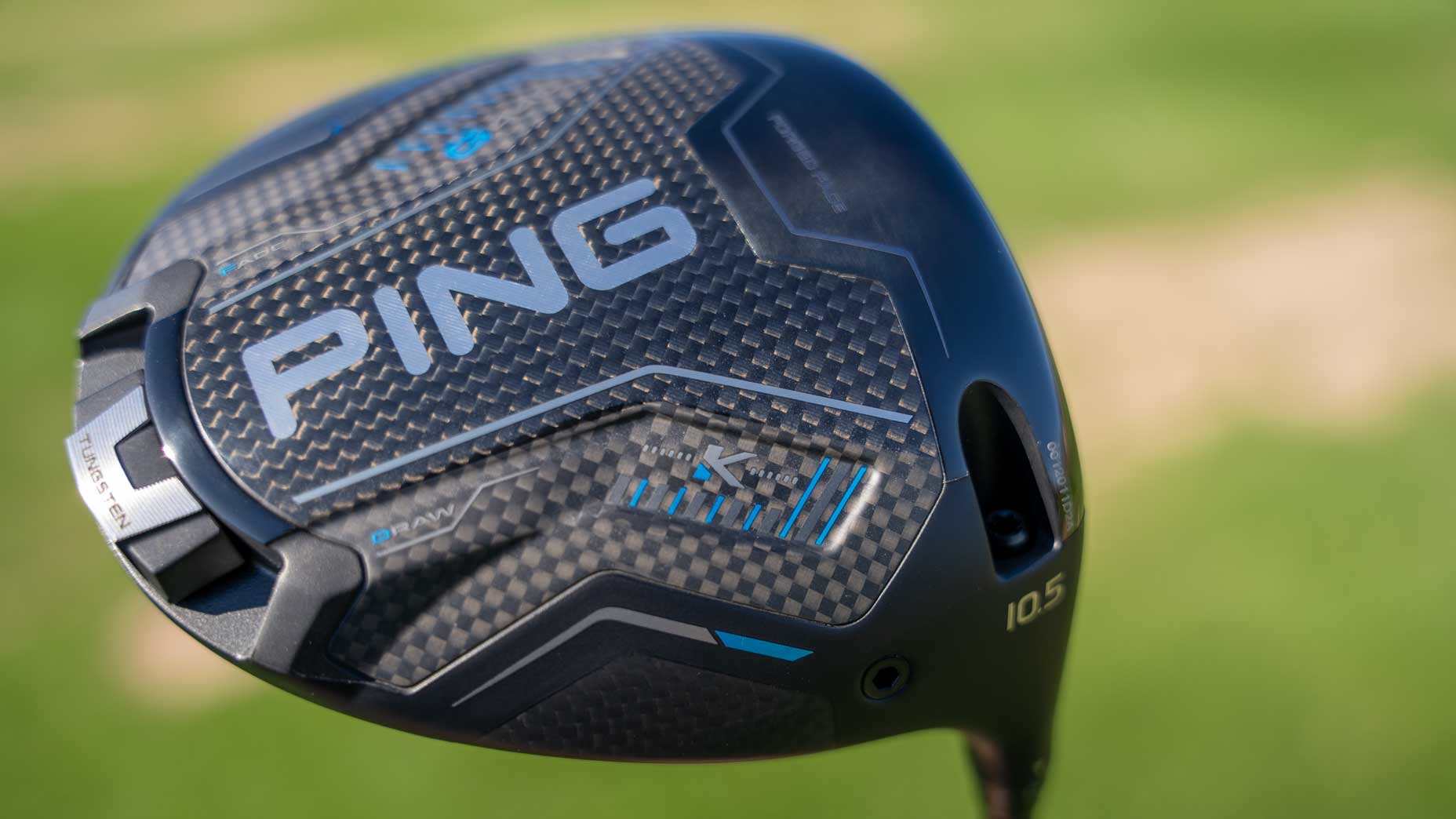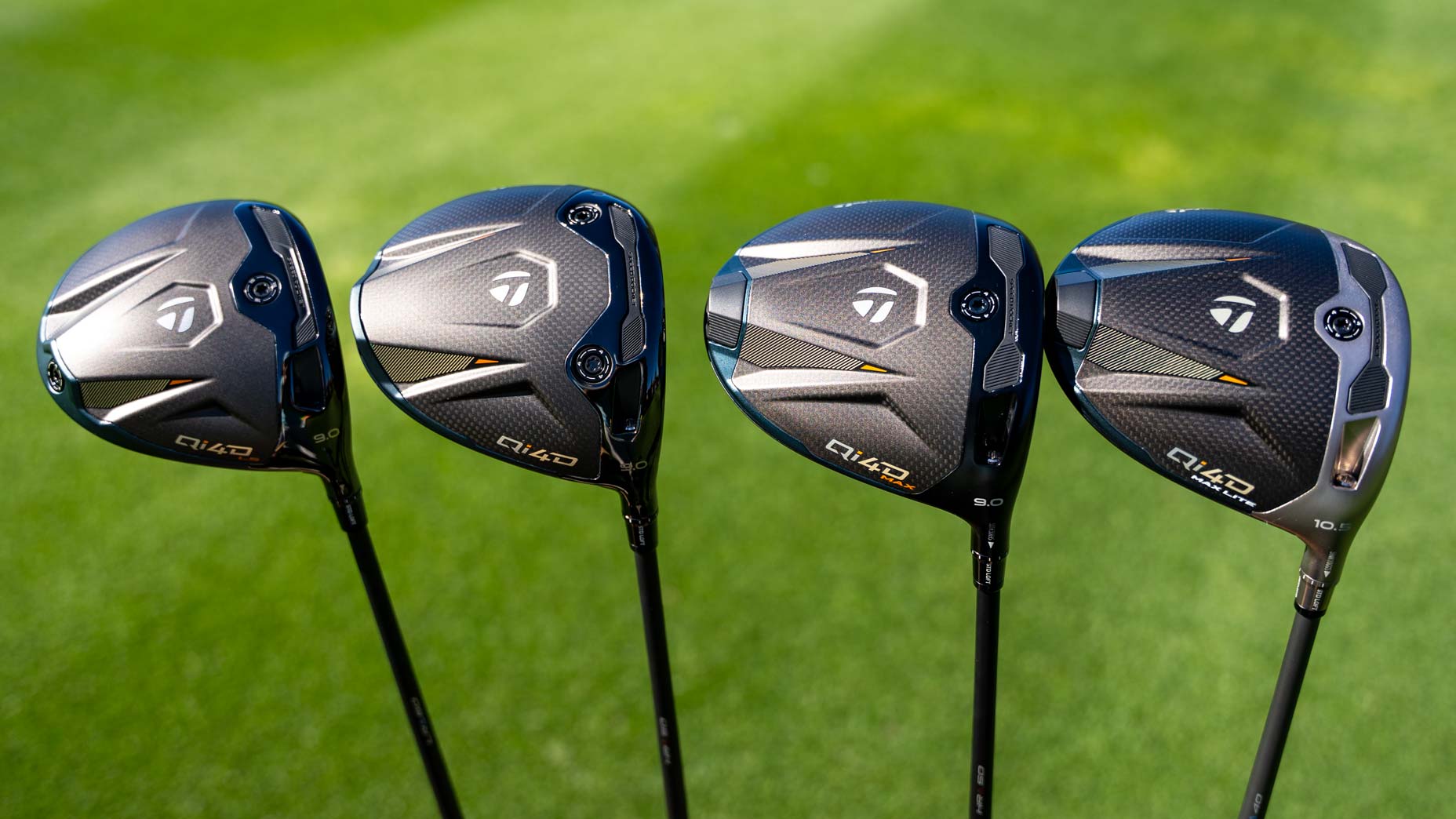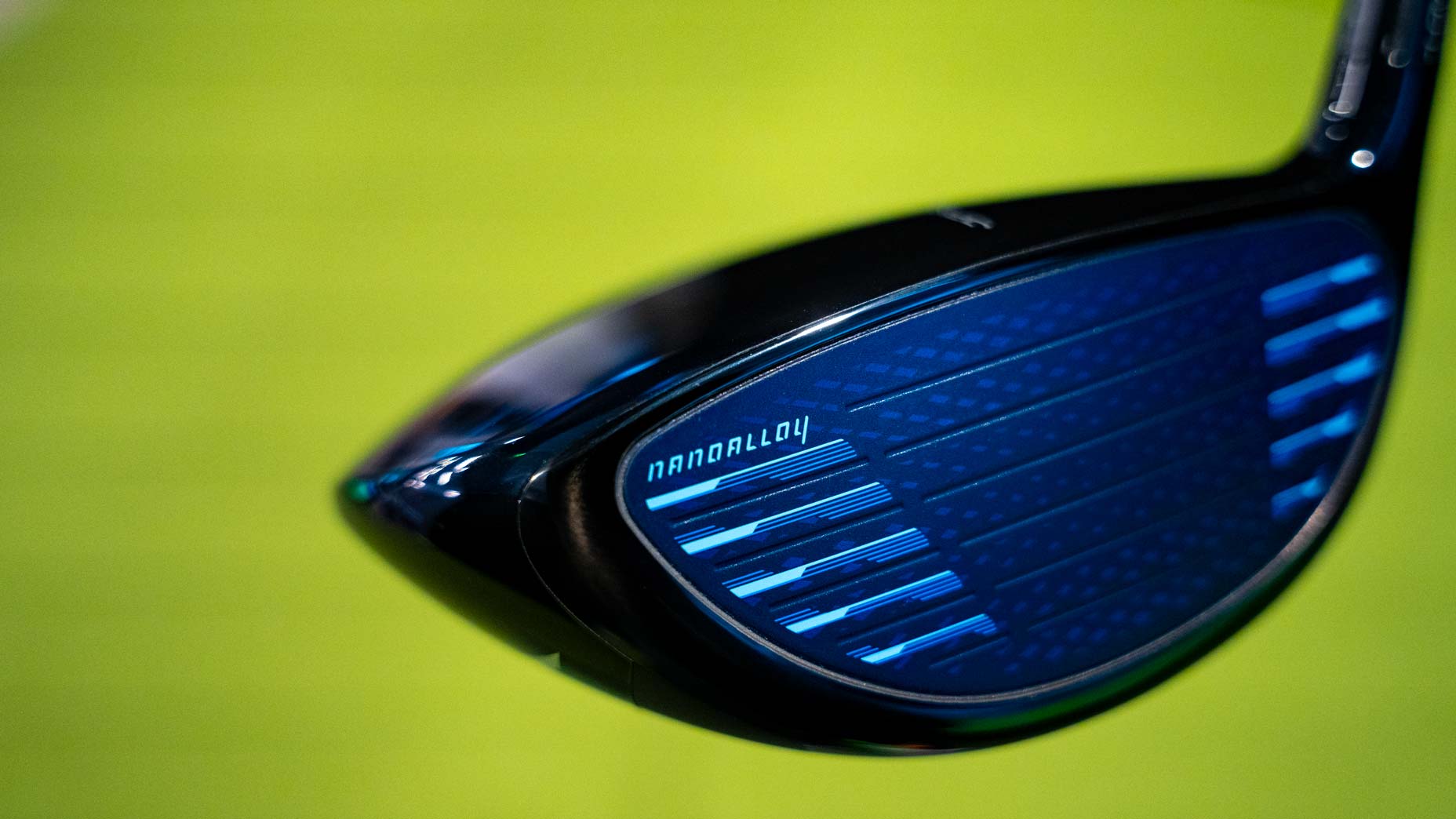Maybe we shouldn’t be surprised that GOLF.com’s most-read equipment story of the year is tied to gaining more distance off the tee. Even as golf’s governing bodies attempt to curtail how far every golfer hits it, recreational players continue to seek out new and innovative ways to squeeze a few more yards out of their driver.
But how do you go about generating long-term distance gains? Earlier this year, GOLF’s Ryan Barath penned a piece on ways to hit the ball 300 yards that generated a boatload of eyeballs. As you’ll find out from the insights below, you don’t have to completely revamp your swing to hit it farther.
All it takes is a better understanding of how optimizing clubhead speed and attack angle can instantly unlock a new distance gear.
The formula for distance
Just like you can’t build a house without a foundation, you can’t add distance without clubhead speed.
The general rule of thumb for driving optimization is for every mile per hour of clubhead speed that golfers produce (as a combination of carry and roll), they add 2.75 yards of distance. So to hit a ball 300 yards under normal conditions requires approximately 109 mph of clubhead speed. Clubhead speed directly relates to ball speed, which is influenced by the quality of strike, i.e., how center to the face it is.
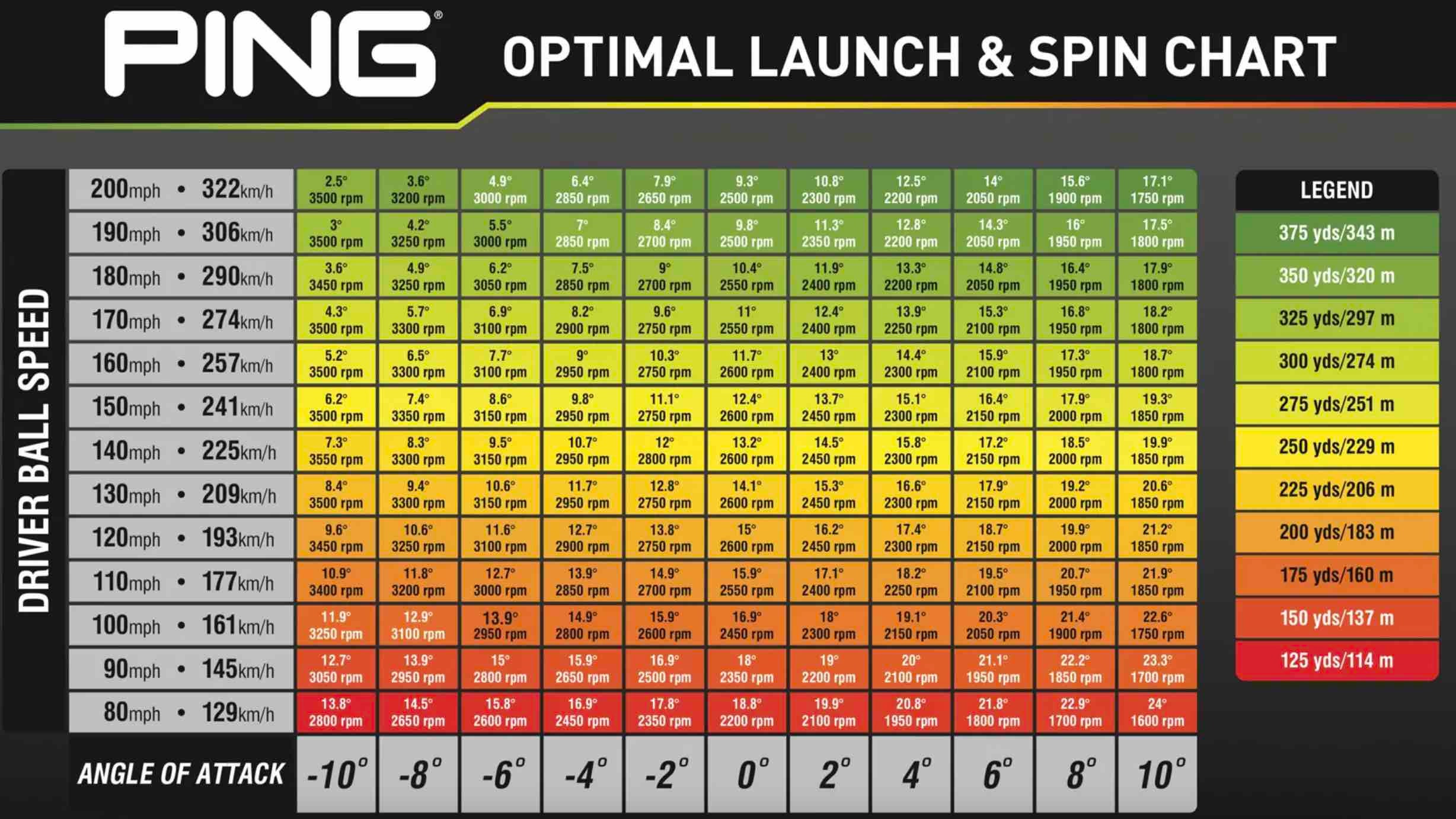
There are exceptions to this rule under various conditions and clubhead speed isn’t the only factor. As the chart from Ping demonstrates above, hitting up on the ball with an upward (positive) angle of attack helps increase launch and decrease spin, which is the secret sauce to distance.
If you’re not a golfer who naturally hits up on the ball, the first step should be to work with a pro to help build fundamentals off the tee. Your driver choice and specs also matter, so fitting also plays a crucial role in helping you achieve more ideal launch conditions.
This is because even if you don’t create the perfect launch conditions with your current swing and driver, it’s possible to adjust your equipment to help optimize, and this is where understanding what to look for on the course or at the range can help you make big changes quickly.
Last but not least, as mentioned at the top, clubhead speed is the biggest determining factor when it comes to increasing ball speed and distance, and even if you aren’t working on actively increasing your clubhead speed, there are still ways to boost ball speed.
One of those is by using a higher MOI (more forgiving) driver which can help retain ball speed better on shots missed around the face. Or, if you want to try something that might seem counterintuitive to adding speed, try choking down, or cutting your driver to a shorter length to help improve center-face contact.
Ball speed drops off quickly on shots missed around the face, so if you can find that sweet spot just a little more often and under the right conditions, you might find yourself making one of the sweetest walks in golf: 300 yards to play your second shot.
Want to overhaul your bag for 2024? Find a fitting location near you at True Spec Golf.



